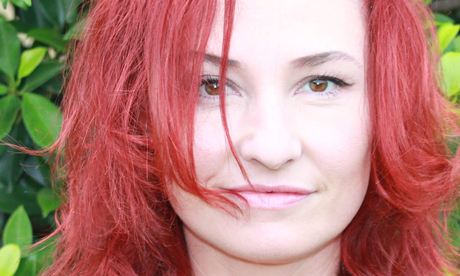
Why do I have the right to write about an intersex character when I'm not intersex?
My latest novel is about an intersex teen, Alex, who has been raised as a boy but now wants to be identified as a girl. I'm often asked how I find an authentic voice for the protagonists in my books, and more so with this book, since I am not intersex.
People ask this question about the voice of the main character as if that's the only one that I write, and somehow all the other characters – the parents, siblings, friends, neighbours, love interests, enemies in the book – somehow magically write themselves. I have to write all of the characters in the book – not just the main one, and I try to make them all sound real. I give them all idiosyncrasies, let them make mistakes and enjoy little victories.
I think what they are really asking when they single out Alex amongst my characters is whether I feel I have a duty to the real life community of people I am pretending to be. I can argue that I've never been a middle-aged male solicitor either, but I put one in the book because I needed him for the story to make sense.
It's one thing to write a middle-aged, white-collar, Caucasian man. They are already broadly included in popular culture. You could make that character good or evil or ugly or offensive, and nobody would care because there are so many others to choose from. But is an intersex adolescent a special case, because they are not well represented in literature, and misunderstood, and even persecuted in real life more than the population as a whole? Does that mean that in writing that character I am in danger of perpetuating a stereotype, or contributing to discrimination?
Lots of writers have written characters outside their own experience and copped flack for it. Phillip Gwynne created a stir in Australia when he wrote Aboriginal characters in his book Deadly, Unna?. Mark Haddon faced similar criticism for The Curious Incident of the Dog in the Night-Time, featuring a character with autism.
The trouble is that if nobody is allowed to write these characters, doesn't that keep them nameless and voiceless? We need established writers who already have an audience to cut a path for writers in these communities to start representing themselves. We need writers in whose work a publisher already has confidence to take the heat out of the argument and make it unremarkable. Then next time a manuscript crosses the desk, maybe it won't be passed simply on the grounds that it is too controversial.
You cannot populate a book with just yourself. You have to have characters who disagree and sources of conflict between characters, not only because it's more interesting, but because that's the way you tease out ideas. It's how you make the reader consider views they may not have thought about before. All writers choose to situate their characters along a spectrum that ranges from recounting only actual things that have happened to them personally, and being callously disrespectful to the experiences of real people. My goal was to make Alex a bratty teen who fights with her parents, who has a crush, who listens to pop tunes, who wants to be a model, and who also happens to be intersex.
I don't know why there aren't more intersex characters in literature. It doesn't make sense to me, because so much of literature explores identity and concepts of gender.
Alex has conflict and friction with other characters in the book because there is a gap between the way she sees herself and the way she is seen from the outside. But isn't that a really common experience for adolescents? I hope that readers find Alex's struggle to be more familiar than it is foreign.

